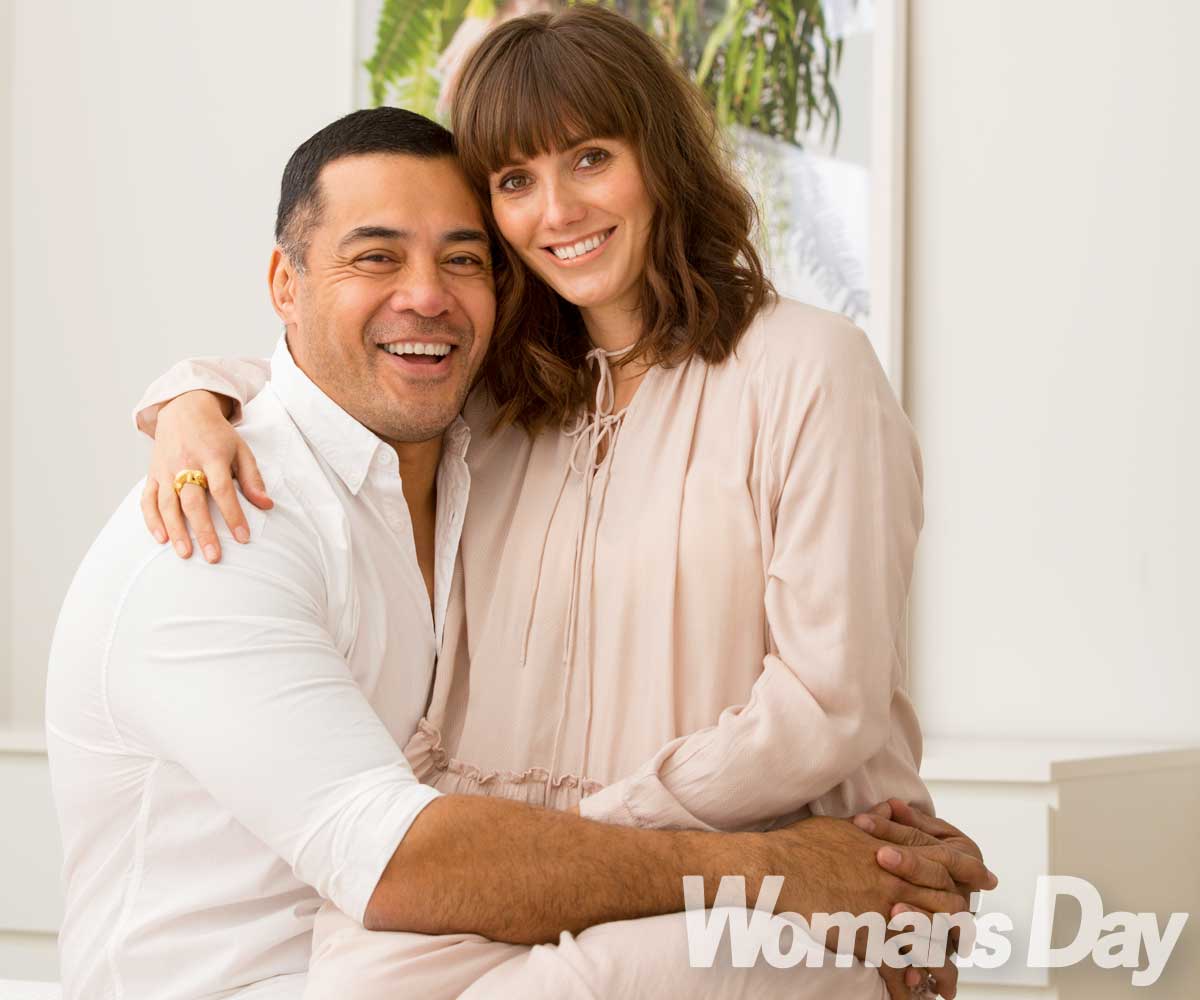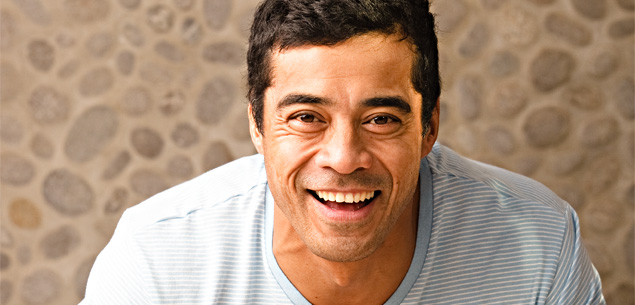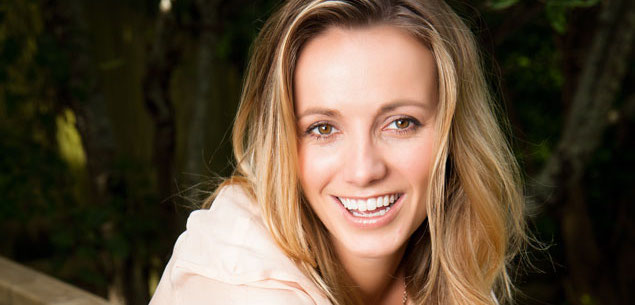As they snuggle up against the winter chill at our exclusive Woman’s Day shoot, it’s clear acting duo Robbie Magasiva and Natalie Medlock are still smitten after seven years together.
But it’s an all-too-brief reunion for the former Shortland Street stars, with Robbie visiting Auckland on a break from filming the hit prison drama Wentworth in Melbourne. The lovebirds are making the most of the long weekend, though, spending as much time as possible in each other’s arms.
Asked what’s special about their relationship, Robbie, 46, explains, “I’ve never been able to put my finger on it – we have so many differences, but we just fell in love.
“Honestly, she makes me a better person. She changed me. I didn’t know who I was before I met her.”
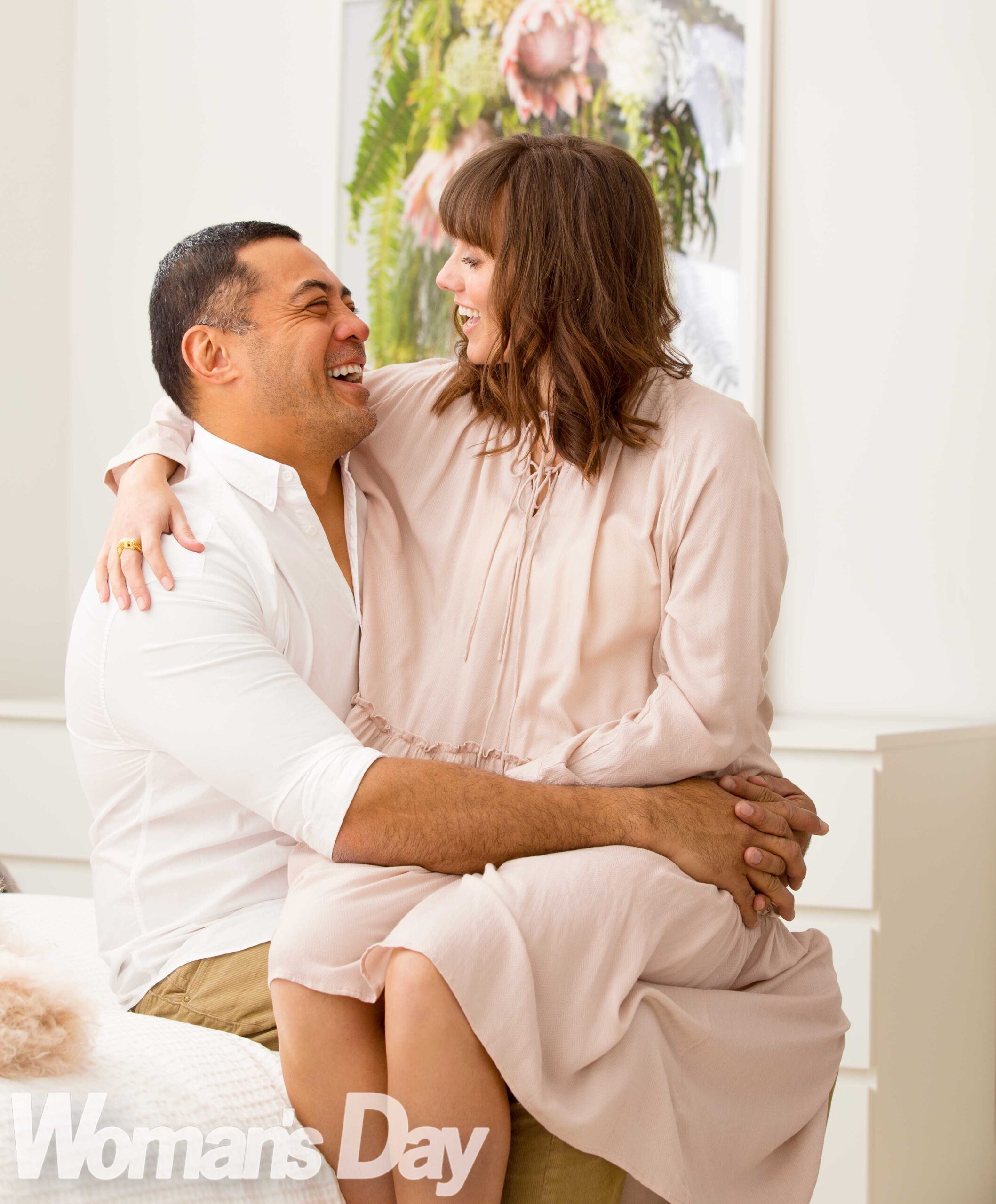
Returning the sentiment, Natalie, 33, says it’s Robbie’s “affection and nurturing” that she finds irresistible. “He has a beautiful heart and soul,” the English-born actress, writer and director explains. “He loves in a very full way.”
However, while the stars might appear to be every inch a stable, rock-solid couple, they confess that their romance has been a rollercoaster ride that has nearly derailed many times since they first got together while playing dashing doctor Maxwell Avia and bubbly nurse Jill Kingsbury on the iconic Kiwi soap in 2011.
In fact, it was almost over before it began when, less than a year into their relationship, Natalie experienced a “traumatic mental breakdown” after years of suffering from depression and anxiety.
She recalls, “I must have been about 11 when I read somewhere that if you smile, it releases endorphins and you feel happier, so I used to spend hours smiling in front of a mirror, but I still felt like the world was going to end. Then in my early 20s, I was very anxious and always waiting for something to make me feel better, but it never happened.”
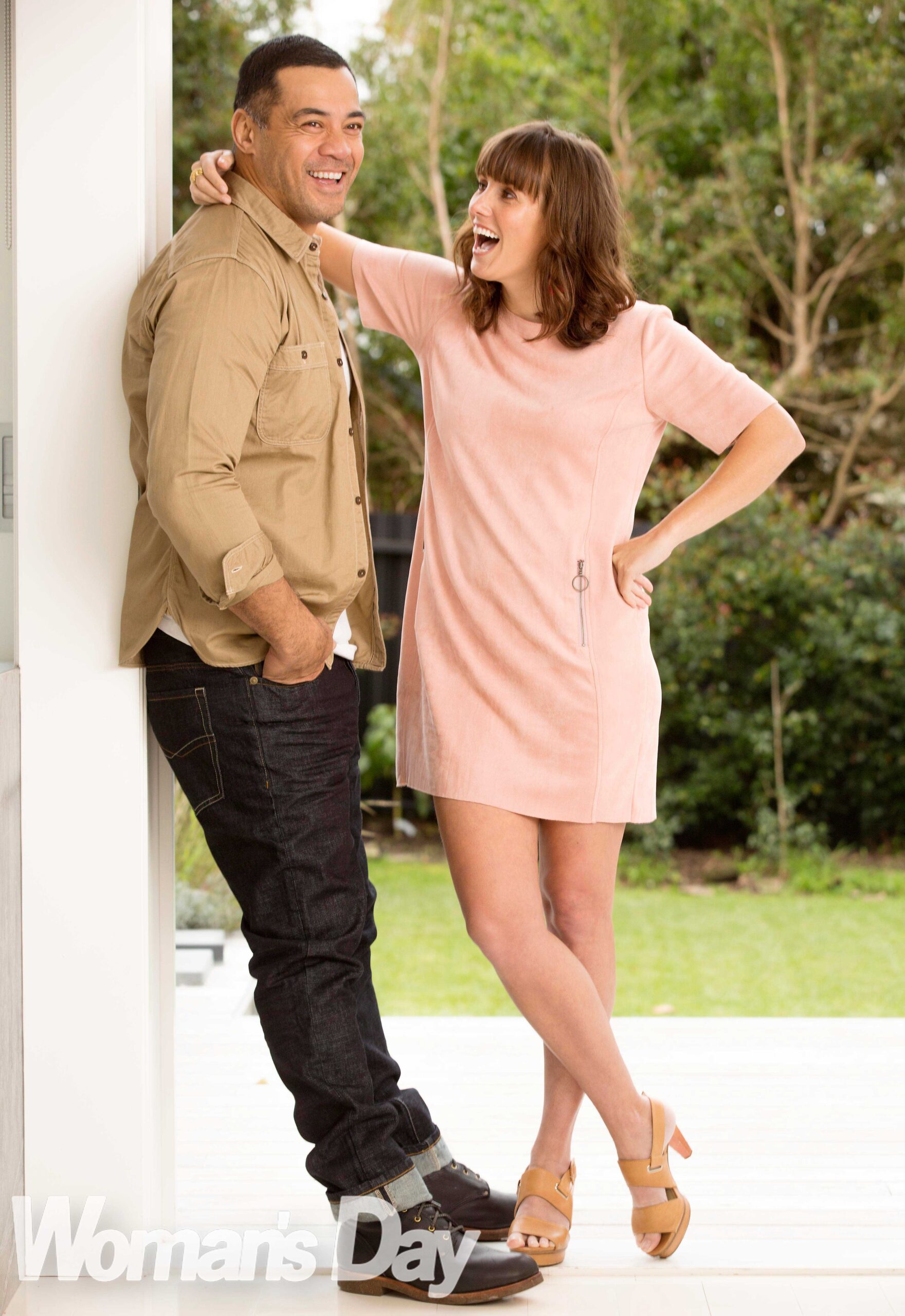
However, the breakdown was like nothing Natalie had ever experienced. “I was hysterical and couldn’t stop weeping,” she remembers.
“I woke up and my heart felt like a rock. I was filled with this fight-or-flight adrenaline and I felt like I was outside my body, looking in.
“My depression wasn’t like, ‘Oh, I’m useless and fat.’ It was more about, ‘What’s the point in the universe?’ I was terrified that everything I was doing was meaningless. I couldn’t face going outside the house.”
With her parents in England, Natalie had to rely on Robbie, but she says, “He didn’t understand mental illness at that point. He kept trying to fix me and I found it offensive that he thought I was faulty.”
Nodding, Robbie says, “I wanted to help heal her, but I didn’t know how to do it. We come from two different worlds and I couldn’t identify with her depression. To me, she was a privileged white girl who grew up with everything she needed. I thought her life was pretty good and she had nothing to complain about, but it was darker than that.”
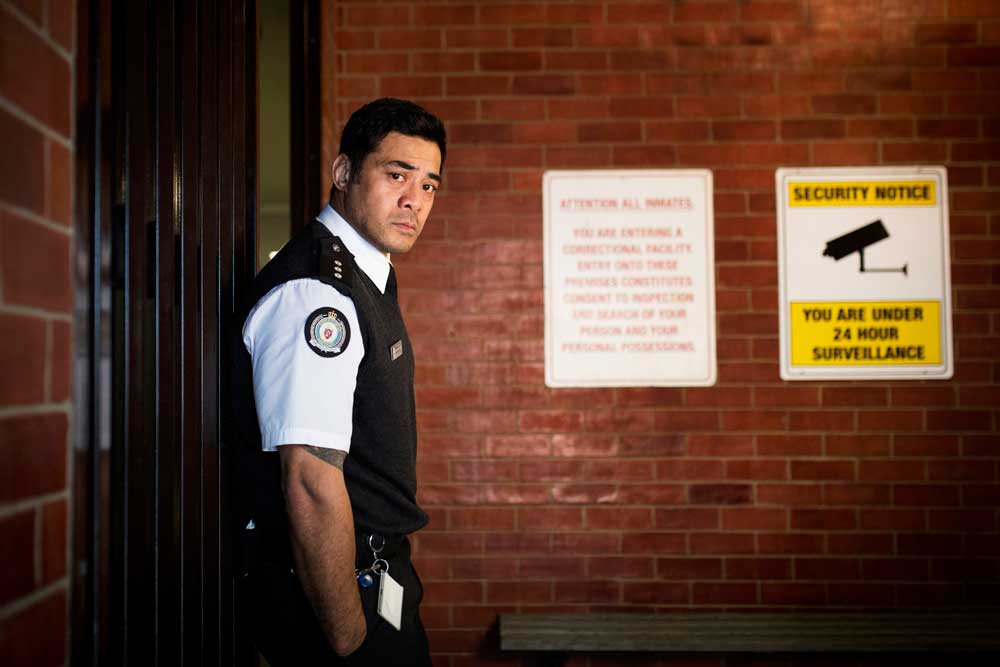
Robbie playing Will Jackson on Wentworth.
Not helping matters, the actor – father to Austin, 21, and Sophie, 18 – was also going through a difficult time finalising his divorce.
He says, “I was forced to face up to the things that I did to people who really didn’t deserve it. I went through a lot of guilt, which manifested as anger. It wasn’t a good time for a new relationship. We never got a honeymoon period. There were a couple of times when it was all over.”
However, the rocky patch was eventually smoothed out with the help of counselling and Natalie’s diagnosis of depression and anxiety. This diagnosis saw her put on medication, which she describes as “reassuring but also terrifying”.
The actress explains, “When I first went on it, I felt confused, like I was losing myself. It’s a hard, scary thing to admit, ‘OK, I’m sick – I need these pills.’ But the medical diagnosis allowed me to let people help and I realised I wasn’t alone in this.”
Through trial and error, Robbie discovered how to lift Natalie’s mood when she’s having a down day. “It has been a learning process,” he says.
“My best advice is not to give advice and to just be there. When it’s too much for her to get out of bed, I just try to be by her side.”
Natalie says, “He really gets it and feels it now. On days when I’m sad or weepy, Robbie will grab my sneakers and literally drag me out the door for a run. I’m sobbing as we’re going around the park, but often I’ll feel better afterwards.”
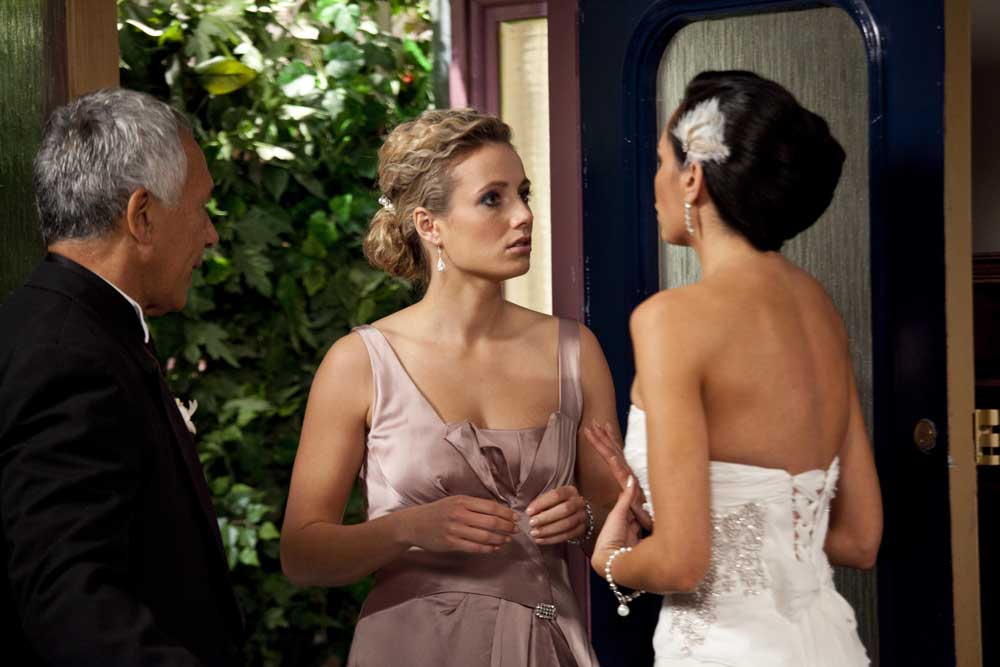
Natalie as Jill Kingsbury on Shortland Street.
“We work together to get her out of that negative mind space,” adds Robbie. “After half an hour outside, she’ll often say to me, ‘Thank you. I needed that.’ That’s a real achievement for me. It makes it all worth it.”
There have been more tricky times since Natalie’s breakdown, with Robbie away filming Wentworth in Australia for months at a time and a short-lived split when the actor relocated to LA for pilot season.
He recalls, “I was only away for a couple of months, but it gave me a lot of time to think about the relationship, my career path and what I wanted in life. While I still intend to work in America, I realised that I love New Zealand too much to pack my bags forever. But most of all, I realised I wanted to be with Nat and my family.”
There was another rocky period last year, when Natalie was forced to change her medication, triggering a fully fledged return of the depression and anxiety. She eventually checked herself into rehab after telling a helpless-feeling Robbie, “I won’t live past 40 if it stays like this.”
The actress explains, “I was very low and just didn’t know what to do or where to go any more. I was seeing a psychiatrist and trying all sorts of holistic therapies, such as acupuncture, meditation and yoga, trying to be the best self-help person that I could be, but I was exhausted and felt ready to jump off a bridge.”
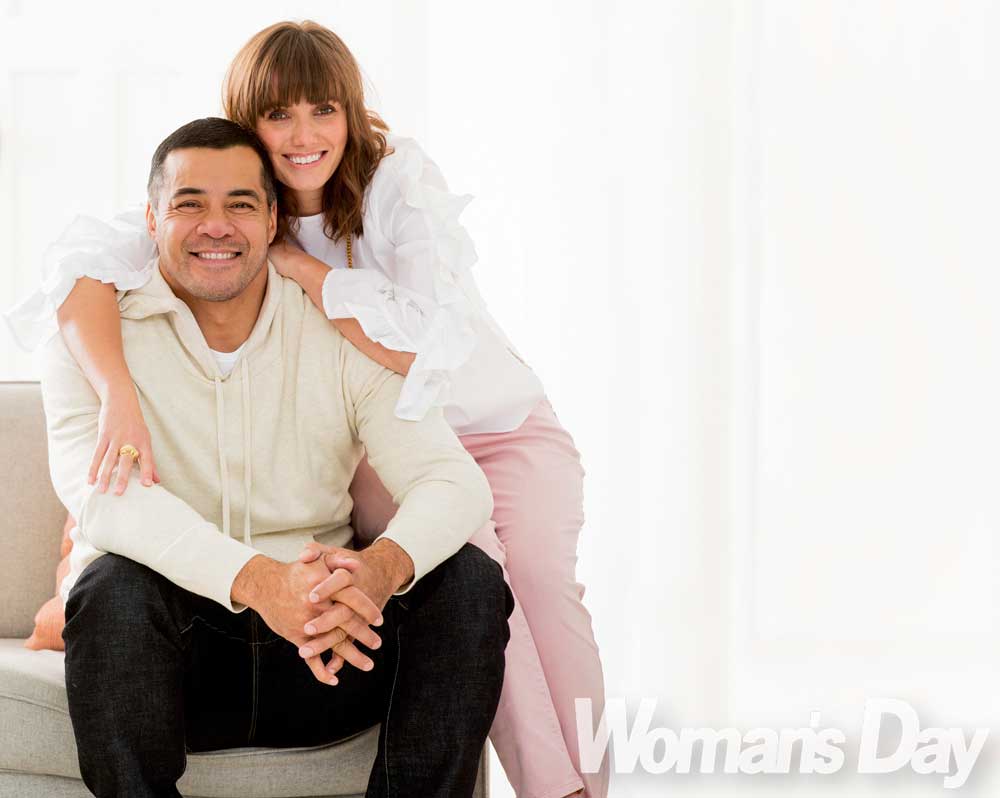
It was a terrifying time, but as a silver lining, the illness sparked a creative streak that saw Natalie jotting down ideas that eventually turned into her new play Near Death Experience, which opens at Auckland’s Basement Theatre on July 31.
“At the time, I was feeling very alone,” she says.
“I became obsessed with near-death experiences and started doing all this research into what happens to people when their hearts stop. When people are clinically dead, they have random experiences – they might meet Madonna or turn into an Indian shaman. Often, when resuscitated, they would be ‘cured of depression’.”
Earlier this year, once her medication was sorted and she was feeling stable, Natalie took out the notes and finished the play, which follows the struggles of a woman who overdoses and, while out for the count, falls in love with psychologist Carl Jung, who’s embodied in the form of a chicken-headed Greek god.
She admits, “It sounds pretty crazy, and there are a lot of my inner-most thoughts and feelings in there, so I was worried about exposing this vulnerability to the world. But I felt it was important to explore the topic of mental health.
“I want to give new insights to people who don’t know a lot about it and maybe let people who suffer from it know that they’re not alone. When you see yourself in something, you do feel less crazy. I hope it offers some guidance.”
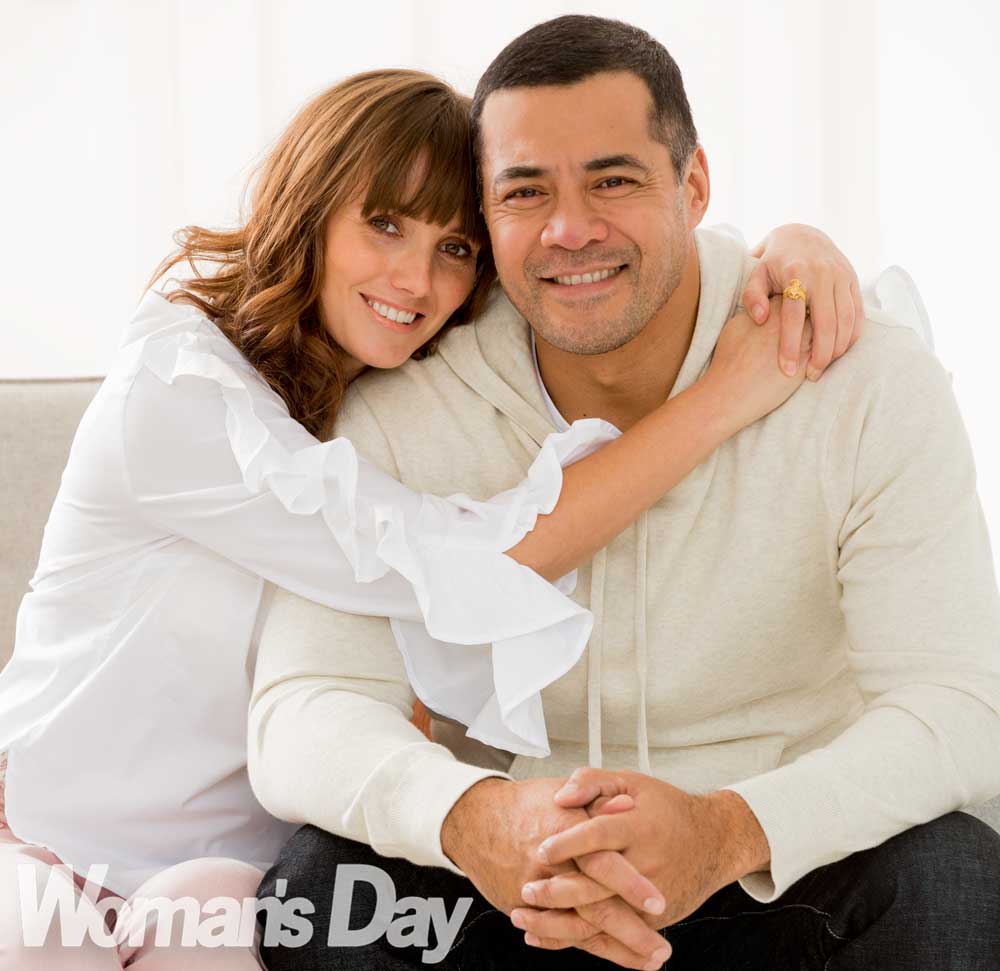
Robbie says, “I have so much pride and admiration for Nat being so open about her experiences. She’s fearless. Mental illness is something that affects so many of us, and I hope people come to see it and take something from the experience.”
There have been yet more tough times in the past year, with Robbie and Nat enlisting the help of a relationship counsellor since last November, but the actress says, “Our therapist saved us. It’s not cheap, but we had too much darkness for us to carry by ourselves and we were close to not being together. Still, sometimes Robbie doesn’t know who he’s woken up to, but we’re in a good place right now. He’s been amazing.”
“The past seven years have been a journey, but we’re coming out the other end of it and we’re finally going through that honeymoon phase,” adds Robbie, raving about their recent trip to her parents’ Coromandel farm, where they “lit fires, drank wine and ate a whole lot of cheese”.
He concludes, “There are good and bad days, but our relationship is worth fighting for. I love this woman.”
Where to get help
If you or someone you know is struggling with suicidal thoughts, call the Suicide Crisis Helpline on 0508 TAUTOKO, text “help” to Lifeline on 4357 or call them on 0800 543 354. For other mental health issues, call 0800 111 757, or text 4202 to talk to a trained counsellor for free or call Youthline on 0800 376 633.
